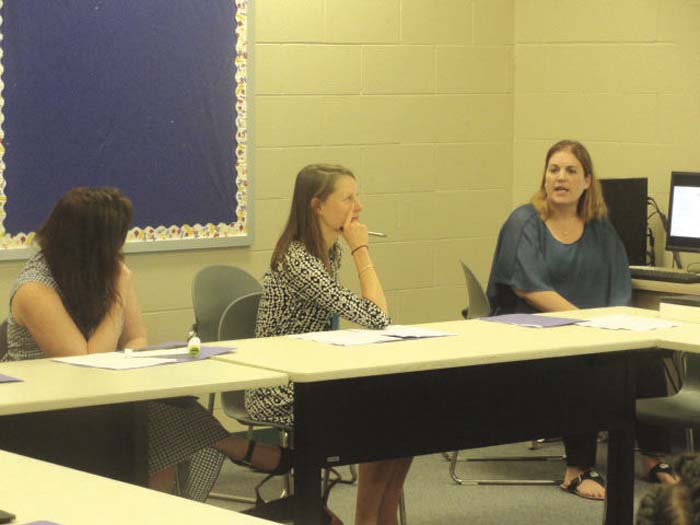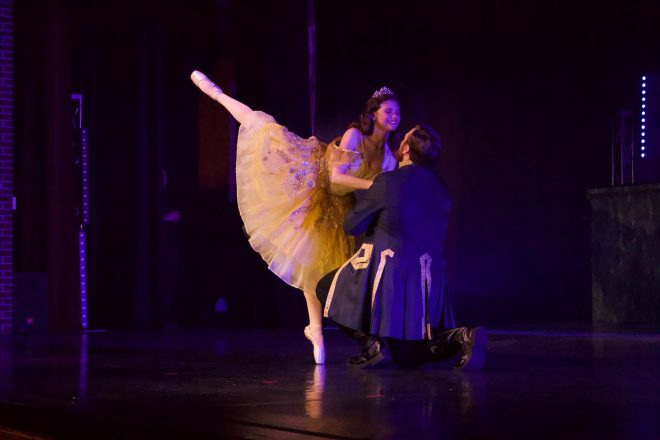Governor’s office visits ELC summer literacy program
Published 1:29 pm Friday, July 28, 2017

- Lori Smith, executive director of the Early Learning Center, talks with representatives from the Governor's Office of Student Achievement last week. The ELC administered LINC, a summer literacy program for kids ages 3 to 5, through a $39,000 grant from the governor's office.
Many people believe that literacy begins when a child picks up a book and starts learning how to read.
The Baldwin County Early Learning Center (ELC) received a $39,000 grant from the Governor’s Office of Student Achievement (GOSA) to administer a month-long summer program called LINC (Literacy In Neighborhood Communities) to teach parents how to incorporate literacy into the world surrounding their young children. The program’s target was families with kids ages 3 to 5 and ended up serving a total of 30 kids throughout July. They came to the ELC three days a week with one day each week set aside for family members to attend and get in on the learning as well.
“A lot of times we find that parents have a misconception about literacy,” said Lori Smith, executive director of the Baldwin County ELC. “They think literacy is about reading and that’s it, so until their children can read they’re not really worried about it. Part of what this program was designed to do was to make sure that parents understand that everything you do all day long is literacy — when you point to the ‘M’ on the McDonald’s sign and make the ‘M’ sound — that’s what we’re moving forward with. The reason we targeted this age group is because there’s nothing available in this community for 3-year-olds in the summer.”
Representatives from the governor’s office visited the ELC last week to learn the program’s findings. They toured classrooms, ate lunch with a few parents who have kids in the program, and asked questions of the program administrators.
“They said this GOSA grant was the one funded for the youngest children, so they hadn’t seen any kids this young,” Smith said of the visit. “Their response was really positive, especially to their lunch with the parents. The parents gave them a lot of information about what they were implementing at home because we gave parents recipes and all kinds of material they could use at home. The children got a couple of books every week and so they were really impressed with the parents.”
The students’ progress was tracked through a series of assessments (different for each age) administered throughout the program’s duration. Smith said each age group improved, but the most significant jump was made by the 3-year-olds.
“They definitely had the opportunity to learn some things and see some things they hadn’t seen before,” the executive director said. “A lot of our families got library cards, which was great because we did a field trip to the library. We just showed parents how to interact out in the community with their child.”
Smith received word that another grant opportunity would become available in August to expand upon the program. She said they are still looking at data gathered from LINC and are waiting to see the new grant’s criteria, but the plan is to apply for further funding and include the summer program as part of the larger funding.
“I’d do it again in a heartbeat,” said Smith. “It was great.”





